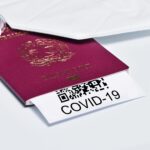Table of Contents
In a significant policy shift, Immigration, Refugees and Citizenship Canada (IRCC) has announced an increase in the financial requirements for Canadian citizens and permanent residents who wish to sponsor their parents and grandparents for immigration or host them on a long-term visitor visa. This development directly impacts the highly sought-after Parents and Grandparents Program (PGP) and the popular Super Visa program. The new income thresholds, based on updated Low-Income Cut-Off (LICO) figures, present a formidable new challenge for families aspiring to reunite in Canada. Understanding these changes is paramount for anyone planning to submit a sponsorship or Super Visa application in the upcoming cycles.
A Closer Look at the New Financial Thresholds for Family Sponsorship
The foundation of sponsoring a parent or grandparent rests on the sponsor’s ability to demonstrate financial stability. The Canadian government mandates this to ensure that sponsored family members will not require social assistance. This financial capacity is measured against the Low-Income Cut-Off (LICO) figures, which are updated annually by Statistics Canada to reflect the cost of living. The latest announcement from IRCC confirms a notable increase in these figures. For potential sponsors, this means the minimum necessary income they must prove has been raised. It’s important to remember that for the Parents and Grandparents Program (PGP), the requirement is not just the LICO amount, but LICO plus 30%. Sponsors must prove they have met this elevated threshold for the three consecutive taxation years immediately preceding their application. For example, if an application is submitted in 2025, the sponsor must provide Canada Revenue Agency (CRA) Notices of Assessment (NOAs) for 2024, 2023, and 2022 that meet or exceed the required MNI for each of those years. The consistent, multi-year nature of this requirement makes long-term financial planning absolutely essential for PGP hopefuls.
The calculation of the required income is directly tied to the total number of people in the sponsor’s family unit, including the sponsor, their spouse or partner, dependent children, and the parents or grandparents being sponsored. For instance, a single sponsor with no dependents who wishes to sponsor two parents would need to demonstrate an income sufficient for a family of three. With the new LICO figures, this amount is now substantially higher than in previous years. This hike reflects rising inflation and economic adjustments, but for many families, it translates into a much higher barrier to entry. Potential sponsors must now meticulously review their income from the past three years against these new, more demanding figures to assess their eligibility accurately before even considering an application for the next PGP intake.
The Critical Distinction: How the Income Increase Affects the PGP vs. The Super Visa
While both the Parents and Grandparents Program (PGP) and the Super Visa are designed to facilitate family reunification, they are fundamentally different pathways with distinct financial requirements, and the recent income hike impacts them differently. The PGP is the ultimate goal for many, as it grants parents and grandparents permanent resident status in Canada. Because of the permanent nature of this commitment, the financial bar is set exceptionally high. Sponsors must meet the Minimum Necessary Income (MNI), which is LICO + 30%, for three consecutive years. The new increase makes this three-year requirement even more challenging to satisfy, potentially disqualifying families who may have met the criteria under the old figures. A single year of lower income, perhaps due to a job change, illness, or parental leave, can derail a PGP application entirely.
In contrast, the Super Visa offers a more flexible and accessible, albeit temporary, solution. It is a multi-entry visitor visa that allows parents and grandparents to stay in Canada for up to five years at a time, with the option to extend, and is valid for up to ten years. The financial requirement for the Super Visa is significantly lower than for the PGP. The host child or grandchild only needs to demonstrate that they meet 100% of the LICO (not LICO + 30%) for just the single most recent taxation year. While the new LICO figures also increase this threshold, the one-year lookback and lower income level make it a far more attainable target for many Canadian families. Therefore, for those who find the new PGP requirements out of reach or who were unsuccessful in the PGP lottery, the Super Visa remains a powerful and vital alternative for bringing family to Canada for extended periods.
Key Takeaways from the Government’s Monumental Announcement
The recent changes to the income requirements for sponsoring parents and grandparents carry significant weight for prospective applicants. To ensure clarity, it is beneficial to distill the announcement into its most critical components. Navigating the complexities of these programs requires a firm grasp of what has changed and what remains the same. Here are the essential points that every potential sponsor or host must understand moving forward:
- Elevated Income Thresholds: The Minimum Necessary Income (MNI) for the PGP (LICO + 30%) and the LICO for the Super Visa have both been increased. Applicants must now consult the latest official figures from IRCC to determine their eligibility based on their family size.
- Distinct Program Requirements: The financial assessment period remains different for each program. The PGP requires proof of meeting the MNI for the three consecutive tax years before applying, while the Super Visa requires meeting the LICO for only the most recent tax year.
- Mandatory Proof of Income: The Canada Revenue Agency (CRA) Notice of Assessment (NOA) remains the primary and mandatory document for proving income. Alternative documents are generally not accepted, making it crucial to have filed taxes on time and have access to these documents.
- The Role of a Co-Signer: Sponsors who cannot meet the income requirement on their own may include the income of their spouse or common-law partner. Both individuals must sign the undertaking and agree to be financially responsible for the sponsored relatives. The co-signer must also meet the same eligibility requirements as the sponsor.
- Super Visa as a Prime Alternative: With the PGP becoming more financially demanding, the Super Visa solidifies its position as a vital and more accessible pathway for long-term family reunification, even if it does not lead to permanent residency.
Proactive Strategies: Navigating Your Options if You Fall Short of the New Income Requirements
Receiving news of increased income requirements can be disheartening, but it should not signal the end of the journey for family reunification. Instead, it calls for proactive and strategic planning. The first step is a frank assessment of your financial situation. Calculate your gross income for the last three years and compare it meticulously against the new MNI figures for your specific family size. If you fall short, determine if a spouse or common-law partner can act as a co-signer. Their income can be combined with yours to meet the threshold. This is often the most direct solution for couples. If you are single or your combined household income is still insufficient for the PGP, it is time to shift focus. Do not waste resources on an application that is destined for refusal based on financial grounds.
The most logical and powerful alternative is the Super Visa. Analyze your income for the most recent tax year. Is it sufficient to meet the new 100% LICO requirement? For many, the answer will be yes, even if the three-year PGP threshold is unattainable. The Super Visa allows your parents or grandparents to come to Canada for extended stays, fostering the very family connection you seek. In addition to meeting the income level, you must also provide proof of private Canadian medical insurance for your visiting relatives. While the PGP remains a lottery-based system with immense competition, the Super Visa is a direct application with a higher degree of predictability. If your parents or grandparents simply wish to visit for shorter periods, a standard Visitor Visa may also be an option, though it typically does not allow for the long, uninterrupted stays that the Super Visa permits. Thoughtful planning and a realistic evaluation of all available pathways are key to success.
Frequently Asked Questions
What is the Low-Income Cut-Off (LICO)? The Low-Income Cut-Off (LICO) is a financial threshold established annually by the Canadian government. It represents the income level at which a family is likely to spend a larger portion of its income on necessities like food, shelter, and clothing than the average family, and it is used to assess a sponsor’s financial capacity. How much income is needed to sponsor parents or grandparents in Canada now? The required income depends on the program. For the Parents and Grandparents Program (PGP), you must meet the Minimum Necessary Income (MNI), which is the LICO plus 30%, for three consecutive years. For the Super Visa, you must meet 100% of the LICO for the single most recent tax year. What is the main difference between the PGP and the Super Visa? The primary difference is the immigration status they confer. The PGP grants parents and grandparents permanent resident status in Canada. The Super Visa is a temporary resident visa that allows for extended, long-term stays of up to five years at a time but does not lead to permanent residency. How can a spouse or common-law partner help meet the new income requirement? A sponsor who does not meet the income requirement alone can include their spouse or common-law partner as a co-signer. Their incomes are combined to meet the financial threshold, and both individuals become jointly responsible for the sponsorship undertaking. What documents prove I meet the financial requirement? The primary and mandatory document required by IRCC to prove your income is the Notice of Assessment (NOA) issued by the Canada Revenue Agency (CRA). You must provide copies of your NOAs for the required number of years (three for PGP, one for Super Visa).Talk to us to find out more. ->
The content above is not intended to provide legal advice or opinions of any kind and may not be used for professional or commercial purposes.







